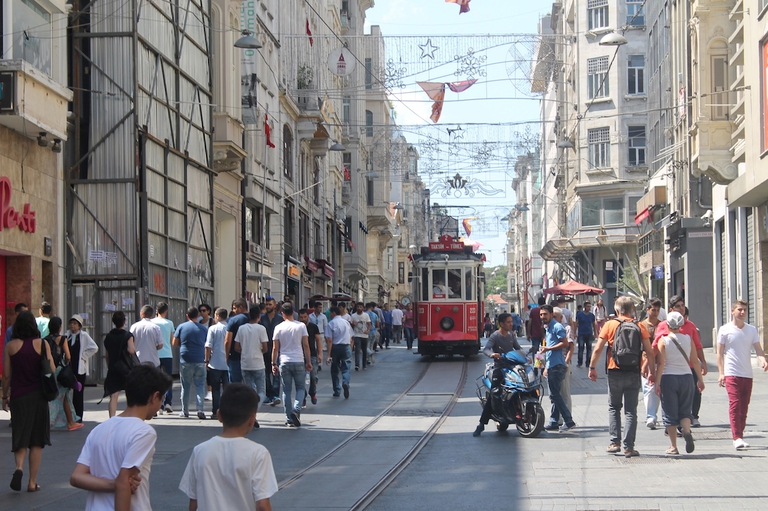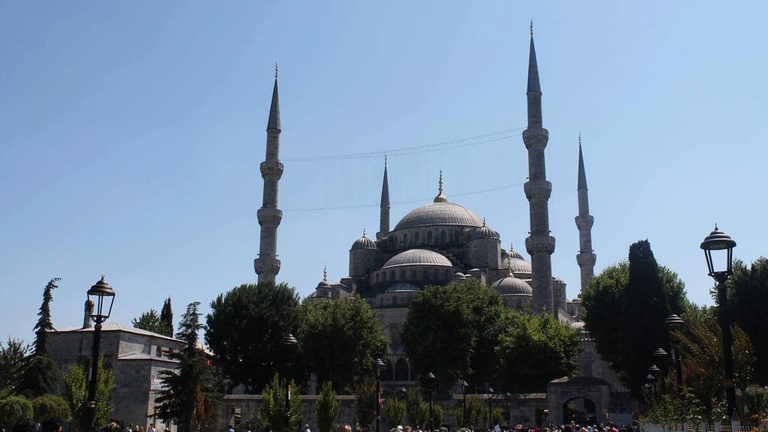
Costa Rica celebrated its first same-sex marriage when two women, Alexandra Quiros and Dunia Araya, celebrated their wedding: an “extraordinary moment”.
State of emergency could threaten human rights In response to the failure of the military coup that took place on the 15th of July, the Turkish government has begun a series of crackdown measures. These include declaring a three-month long state of emergency and suspending the European Convention on Human Rights (ECHR). Thousands of Turkish citizens, from academics to soldiers and
In response to the failure of the military coup that took place on the 15th of July, the Turkish government has begun a series of crackdown measures. These include declaring a three-month long state of emergency and suspending the European Convention on Human Rights (ECHR).
Thousands of Turkish citizens, from academics to soldiers and judges, have been detained or removed from their positions for suspected links with Fethullah Gulen – a former imam accused by Turkish President Recep Tayyip Erdogan of being behind last week’s putsch.
National authorities affirm that the fundamentals of democracy are being guaranteed. But international NGOs express their concern, and have invited the government not to roll back human rights and use the state of emergency as a pretext to clampdown on peaceful dissent.
Over 60,000 Turkish citizens including soldiers, police, judges, civil servants and teachers have been suspended, detained or put under investigation.
On the 23rd of July the Turkish Foreign Minister also announced further restrictions related to prisoners’ rights and people in police custody. According to the new government’s decree, for example, police have the right to detain people in custody up to thirty days without a court’s validation. In addition, contact between prisoners and their lawyers may be limited or recorded for security reasons.
Furthermore, Turkish authorities have decided to close around 2,000 institutions including universities, trade unions, foundations, associations and hospitals. 24 radios and televisions have been shut down and 34 Turkish journalists’ media accreditations have been revoked by order of the Turkish Radio and Television Supreme Council (RTÜK). On the 25th of July Turkey’s authorities issued detention warrants for 42 journalists accused of supporting the Fethullah Gulen network.
After the declaration of the state of emergency, Amnesty International expressed its concern with regards to human rights violations in Turkey. It has invoked the European Committee for the Prevention of Torture (CPT) to intervene to monitor detention conditions. According to the NGO there is credible evidence that detainees are being subject to beatings and torture, including rape, in official and unofficial detention centres around the country. According to Andrew Gardner, a researcher on Turkey for Amnesty International:
In the wake of the violence surrounding the attempted coup, taking measures prioritising public security is understandable. But emergency measures must respect Turkey’s obligations under international law, should not discard hard won freedoms and human rights safeguards.
Over the years, Turkey has represented a unique example of coexistence between cultures and traditions, and a privileged gateway to the Black Sea and Muslim world. Yet the suspension of the European Convention on Human Rights increases the risk of radicalisation and if Ankara expands its crackdown measures it will compromise its key role as a “bridge” between Asia and Europe. And a new geopolitical balance will have go be redesigned.
Siamo anche su WhatsApp. Segui il canale ufficiale LifeGate per restare aggiornata, aggiornato sulle ultime notizie e sulle nostre attività.
![]()
Quest'opera è distribuita con Licenza Creative Commons Attribuzione - Non commerciale - Non opere derivate 4.0 Internazionale.
Costa Rica celebrated its first same-sex marriage when two women, Alexandra Quiros and Dunia Araya, celebrated their wedding: an “extraordinary moment”.
On top of a 2.4 million dollar compensation, the indigenous Ashaninka people will receive an official apology from the companies who deforested their lands in the 1980s.
Amnesty International has documented the state of human rights in 159 countries in 2016. And claims: “The rhetoric of ‘us against them’ is breeding division and fear”.
From Italy to the United States, workers in the logistics and delivery sectors are protesting to demand better sanitary conditions to protect themselves from Covid-19.
The pandemic and its restrictions are affecting everyone, without exceptions. However factors like housing, income inequalities, gender, access to technology and working conditions are influencing how people experience the health crisis.
In the midst of India’s coronavirus lockdown, two dozen people lost their lives in a desperate bid to return home: migrant labourers forced to leave the cities where they worked once starvation began knocking at their doors.
Apple, Dell, Microsoft and Tesla are among the tech companies named in a lawsuit brought in the US by the families of children killed and maimed in cobalt mining activities in the Democratic Republic of Congo.
We, the people is Survival’s 2020 calendar, which features the winners of the photography contest showcasing images of the world’s indigenous peoples.
Un violador en tu camino – the rapist is you – is an anthem protesting the impunity of gender-based violence. It began in Chile and has become a global flash mob, bringing people to the streets and resonating all over the world.









